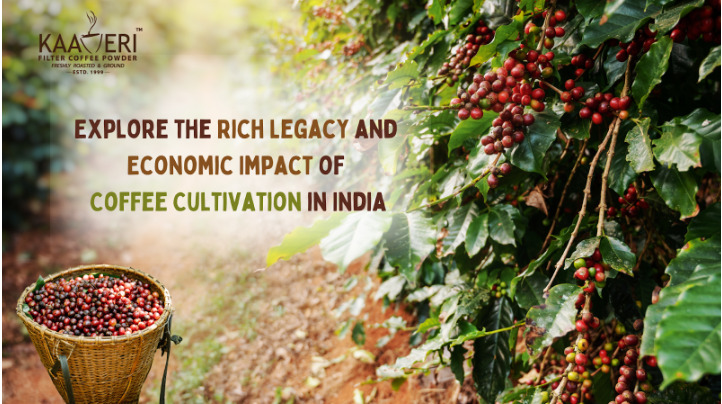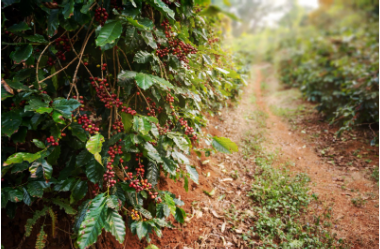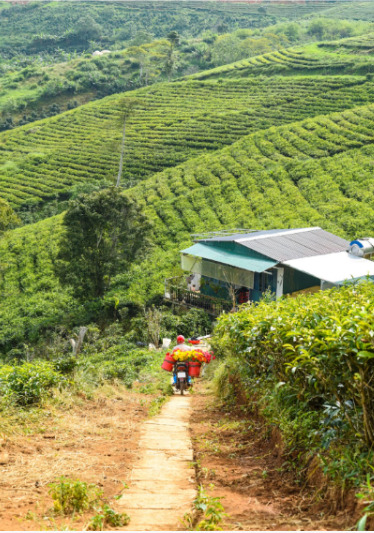
Explore the Rich Legacy and Economic Impact of Coffee Cultivation in India
Coffee Cultivation Regions in India: A Brew of Tradition and Prosperity
India’s Rich Coffee Heritage
India, often celebrated for its vast tea plantations, is also home to a burgeoning coffee industry. Coffee cultivation in India has a long and storied history, with its roots tracing back to the 17th century. The lush landscapes and ideal climate of certain regions have turned India into a significant contributor to the global coffee market. This blog will delve into the captivating world of coffee cultivation in India, exploring the key regions, historical significance, and the substantial impact on the Indian economy.

Coffee Cultivation in India
India stands as the sixth-largest coffee producer in the world, boasting a diverse array of coffee varieties. The two primary coffee types cultivated in India are Arabica and Robusta. While the Arabica variety is known for its mild flavour, Robusta possesses a stronger taste and higher caffeine content. These coffee variants are predominantly grown in the southern regions of the country, creating a rich tapestry of flavours for coffee enthusiasts.

Coffee Production in India
Coffee production in India is not a recent phenomenon. It was introduced in the Chikmagalur district of Karnataka during the 17th century when a Sufi saint named Baba Budan brought seven coffee beans from Yemen. These seven beans were the inception of coffee plantations in India, and they still flourish today. Karnataka continues to be a coffee-producing powerhouse, contributing significantly to India’s coffee output.
Key Coffee Growing Regions in India
Karnataka
Often referred to as the “Silicon Valley of India,” this state is also known as the “Coffee Cup of India.” It is the largest coffee-producing region in the country, with Chikmagalur, Coorg, and Hassan being the prominent districts.

Kerala
Wayanad, a picturesque region in Kerala, is another vital coffee-growing area, known for its lush hills and ideal coffee-growing climate.

Tamil Nadu
The Nilgiris district in Tamil Nadu is renowned for its exquisite coffee. The coffee produced here has a unique flavour profile, thanks to the region’s altitude and climate.

Andhra Pradesh
The Araku Valley in Andhra Pradesh is making a name for itself in the coffee industry, known for its organic coffee farming methods and high-quality beans.

Economic Contributions of Coffee Cultivation
The cultivation of coffee has not only left a significant mark on India’s cultural history but also plays a vital role in the country’s economy. The coffee industry has provided employment opportunities to numerous people, contributing to rural development. In addition to the direct employment in coffee plantations, it has spurred the growth of related sectors such as processing, packaging, and export.
The economic contribution of coffee cultivation extends beyond its role as a job provider. Coffee is one of India’s most prominent agricultural exports, with substantial foreign exchange earnings. Indian coffee beans are renowned for their quality, and they are in high demand in international markets. The earnings from coffee exports not only benefit the coffee growers but also bolster the national economy.

Conclusion
India’s coffee cultivation regions are an essential part of the country’s history and economy. The journey from Baba Budan’s seven beans to becoming the sixth-largest coffee producer in the world is a testament to the country’s dedication to quality and tradition. The coffee-growing regions of Karnataka, Kerala, Tamil Nadu, and Andhra Pradesh have not only produced rich, aromatic brews but have also brewed economic prosperity, employment, and international recognition. Coffee cultivation in India is more than just a delightful beverage; it’s a testament to the nation’s dedication to excellence and its contributions to the global coffee industry.


No Comments